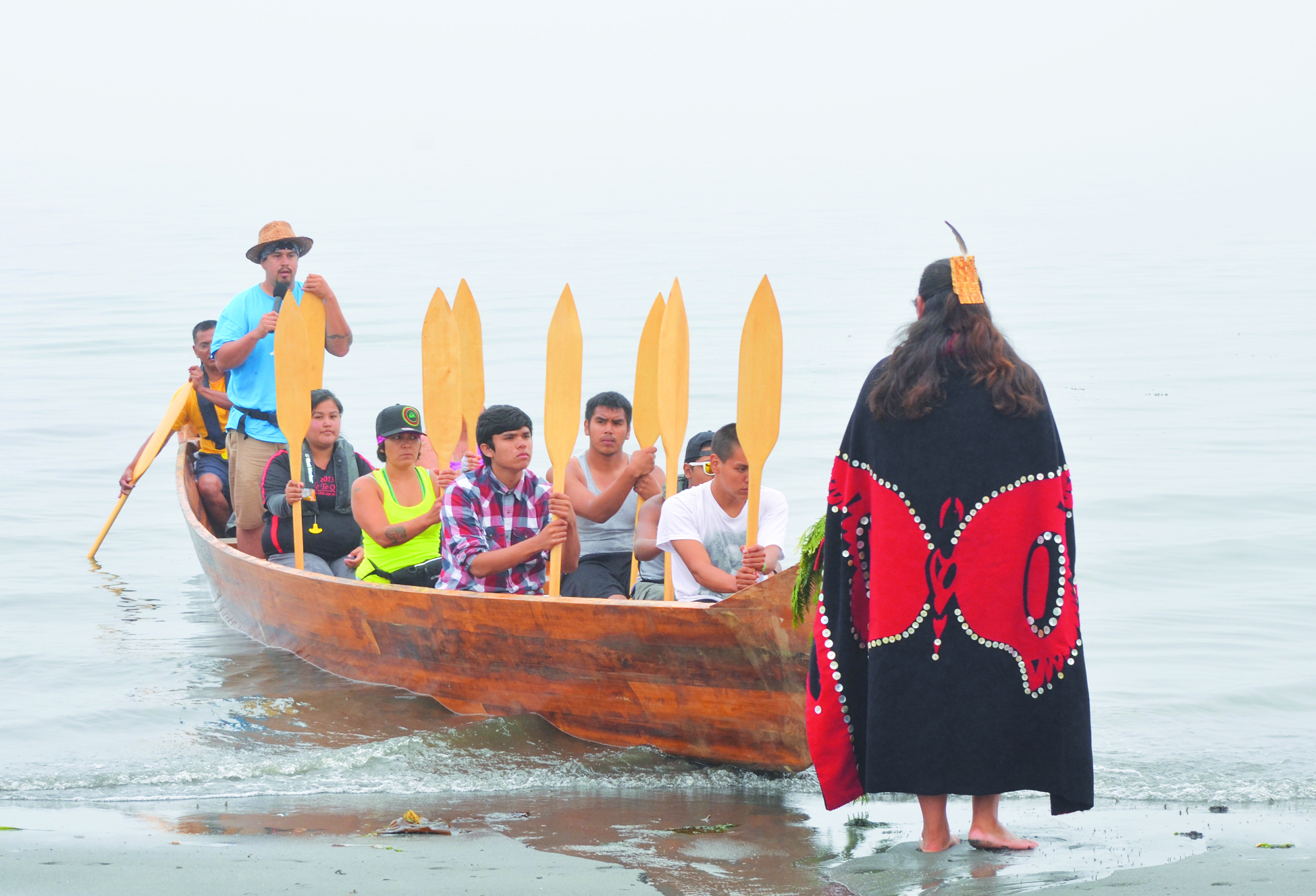PORT TOWNSEND — The first canoe to arrive at Fort Worden State Park on Sunday for the Port Townsend stop on the Paddle to Quinault came from an unexpected direction, navigating through fog from the north instead of Port Gamble to the south.
“When it’s this foggy, we start singing so the pullers can follow the sound and know where to land,” said Terri McQuillen, a Makah member from Port Townsend who was on hand for the ceremonial greeting of pullers on their way to the Aug. 1-6 celebration at Taholah.
About 100 people were on the beach near the Port Townsend Marine Life Center at Fort Worden at 9 a.m., but by the time canoes started arriving an hour later, that number had tripled.
The first canoe was from the Lummi Nation, followed almost immediately by two more from the Nooksack tribe.
Thousands of tribal members from across the Pacific Northwest and Canada are taking part in the annual journey on their way to the Quinault Nation on the Olympic Peninsula’s central western coast.
During the journey, pullers stop after a day in the canoes to be greeted by members of tribes who provide food, shelter and a potlatch celebration.
At each beach, pullers ask permission to come ashore, and local tribal members sing out a welcome.
The Jamestown S’Klallam, Port Gamble S’Klallam and Lower Elwha Klallam tribes were scheduled to greet the pullers at Fort Worden, the first stop on the North Olympic Peninsula.
McQuillen said about 25 canoes were expected to arrive throughout the day Sunday. Pullers were camping at the Jefferson County Fairgrounds before leaving for Jamestown Beach this morning.
“This is a healing experience,” McQuillen said of participation in the journey.
“My mother [the late tribal elder Mary McQuillen] always said there are no social programs that help Native American youth from dealing with the anger, hatred and racism that they deal with every day.
“On the journey, you learn to trust the skipper, follow the leader and do what’s best for you.”
The journey also offers an opportunity to resolve differences, McQuillen said.
“You can never get onto a canoe with any ill feelings,” she said. “If you don’t leave them ashore, then the spirits will feel the conflict and the journey will be disrupted.”
“After a canoe tips, the first thing you do before continuing is to heal the bad emotions and resolve these conflicts,” she added.
Jefferson County Commissioner David Sullivan, who said he attends the landing every year, said the event helps people understand the area’s history.
“This is a really visible way of preserving the culture that was here before us,” Sullivan said.
“With this context, you can see what it was really like — culturally, environmentally and economically — and it brings the people who were here before us into our consciousness.”
—————-
Jefferson County Editor Charlie Bermant can be reached at 360-385-2335 or at cbermant@peninsuladailynews.com.
Reporter Jeremy Schwartz contributed to this article.

